Guide to What Non Alcoholic Fatty Liver Disease Nafld
Discover everything you need to know about Non-Alcoholic Fatty Liver Disease (NAFLD)—its causes, symptoms, stages, diagnosis, and treatment options. Learn how lifestyle changes can help reverse fatty liver and protect your long-term liver health.

Written by Dr. Md Yusuf Shareef
Reviewed by Dr. Shaik Abdul Kalam MD (Physician)
Last updated on 13th Jan, 2026

Introduction
Imagine your liver, your body's hardworking detoxification centre, slowly becoming clogged with fat—not from alcohol, but from everyday lifestyle choices. This is the reality for millions of people living with Non-Alcoholic Fatty Liver Disease (NAFLD), a condition often called a "silent epidemic." It's the most common chronic liver disorder in the world, yet many are unaware they have it until it has significantly progressed. This guide will demystify NAFLD, walking you through everything from its subtle causes and often absent symptoms to the practical steps you can take to manage, reverse, and prevent it. Understanding this condition is the first and most crucial step toward reclaiming your liver health.
What Exactly is Non-Alcoholic Fatty Liver Disease (NAFLD)?
Non-Alcoholic Fatty Liver Disease (NAFLD) is a medical term for a range of liver conditions affecting people who drink little to no alcohol. As the name suggests, the main characteristic is an excessive accumulation of fat in the liver cells. A healthy liver contains little or no fat. When more than 5% of the liver's weight is made up of fat, it is diagnosed as a fatty liver.
Think of your liver as a processing plant. When it's functioning correctly, it efficiently processes nutrients and filters toxins. However, when overwhelmed by factors like a high-sugar diet and a sedentary lifestyle, it starts storing excess fat, much like a clogged filter. It's important to understand that NAFLD exists on a spectrum, from a relatively harmless buildup to a serious, inflammatory state.
Consult a Top specialist for Personalised Advice
Simple Fatty Liver vs. NASH: Understanding the Difference
Not all fatty liver disease is the same. The distinction between the two main types is critical for prognosis and treatment.
- Simple Fatty Liver (Hepatic Steatosis): This is the early, more common stage. It involves fat accumulation without significant inflammation or liver cell damage. While having excess fat is not ideal, simple fatty liver typically does not progress to cause serious complications or liver damage on its own. Many people live with this condition without it ever affecting their health.
- Non-Alcoholic Steatohepatitis (NASH): This is the more aggressive form of Non-Alcoholic Fatty Liver Disease. In NASH, the fat buildup is accompanied by inflammation and damage to the liver cells. This inflammation can lead to scarring (fibrosis) of the liver. Over time, persistent scarring can progress to cirrhosis, a severe state where the liver becomes shrunken and scarred, leading to liver failure and an increased risk of liver cancer.
The Silent Progression: Causes and Key Risk Factors of NAFLD
The exact cause of Non-Alcoholic Fatty Liver Disease isn't fully understood, but it's closely linked to insulin resistance,
a condition where your body's cells don't respond well to the hormone insulin. This leads to high blood sugar levels,
prompting the liver to convert the excess sugar into fat, which is then stored within itself.
Metabolic Syndrome: The Central Player
NAFLD is often considered the hepatic (liver) manifestation of metabolic syndrome. You are likely to be diagnosed
with metabolic syndrome if you have at least three of the following five conditions, all of which are major risk factors
for fatty liver:
- Large Waist Circumference: (Abdominal obesity)
- High Blood Pressure: (Hypertension)
- High Blood Sugar: (Indicating pre-diabetes or type 2 diabetes)
- High Triglyceride Levels: (A type of fat in your blood)
- Low HDL Cholesterol: ("Good" cholesterol)
Other Significant Risk Factors You Should Know
- Obesity: Particularly carrying excess weight around the abdomen.
- Type 2 Diabetes: Insulin resistance is a hallmark of both conditions.
- Dyslipidemia: An imbalance of lipids, like high triglycerides.
- Hypothyroidism: An underactive thyroid gland.
- Polycystic Ovary Syndrome (PCOS): This condition is also linked to insulin resistance.
- Rapid Weight Loss: Paradoxically, losing weight too quickly can worsen liver fat.
- Certain Medications: Some drugs, like corticosteroids and tamoxifen, can contribute.
Recognising the Signs: Symptoms of NAFLD
One of the most challenging aspects of NAFLD is its "silent" nature. In the early stages, particularly with simple fatty
liver, there are often no noticeable symptoms of fatty liver. The condition is frequently discovered incidentally during
routine blood tests that show elevated liver enzymes.
As the disease progresses to NASH or cirrhosis, symptoms may begin to appear.
When to See a Doctor: Warning Signs Not to Ignore?
If you experience any of the following, it's essential to seek medical advice. If symptoms persist, consult a doctor online
with Apollo24|7 for further evaluation.
- Persistent Fatigue and Weakness
- Pain or Discomfort in the upper right abdomen (where the liver is located)
- Unexplained Weight Loss
- Yellowing of the Skin and Eyes (Jaundice)
- Swelling in the legs (Oedema) or abdomen (Ascites)
How is NAFLD Diagnosed? The Step-by-Step Process
Diagnosing Non-Alcoholic Fatty Liver Disease involves a process of elimination and confirmation.
Common Blood Tests and What They Mean
The first clue is often from a Liver Function Test (LFT), a routine blood test. Elevated levels of liver enzymes like ALT
(Alanine Transaminase) and AST (Aspartate Transaminase) can indicate liver inflammation. Apollo24|7 offers
convenient home collection for tests like LFTs, making initial screening easier.
The Role of Liver Biopsy
A liver biopsy is the gold standard for diagnosing NASH and determining the extent of scarring. A small sample of liver
tissue is removed with a needle and examined under a microscope. It's typically reserved for cases where the diagnosis
is unclear or advanced disease is suspected.
Get Your Symptoms Assessed
Reversing the Condition: Effective Treatment and Management Strategies
The good news is that there are currently no FDA-approved medications specifically for NAFLD, lifestyle modification is the cornerstone of treatment and can be highly effective, especially in the early stages.
Weight Loss: The Most Powerful Medicine
Gradual, sustained weight loss is the single most effective intervention. Studies show that losing just 5% of your body
weight can reduce liver fat. Losing 7-10% can improve inflammation and potentially reverse fibrosis.
Dietary Changes for a Healthier Liver
Adopting a diet for NAFLD is crucial. Key principles include:
- Reduce Sugary Intake: Avoid sugar-sweetened beverages, sweets, and processed foods.
- Choose Complex Carbs: Opt for whole grains, vegetables, and legumes over refined carbohydrates (white bread, pasta).
- Incorporate Healthy Fats: Focus on sources like olive oil, nuts, avocados, and fatty fish.
- Increase Antioxidants: Eat a variety of colourful fruits and vegetables.
The Importance of Regular Physical Activity
Aim for at least 150 minutes of moderate-intensity exercise (like brisk walking, cycling, or swimming) per week.
Exercise improves insulin sensitivity and helps burn triglycerides for fuel, reducing liver fat independently of weight loss.
Managing Underlying Conditions (Diabetes, Cholesterol)
Working with your doctor to effectively manage type 2 diabetes, high blood pressure, and high cholesterol with medication and lifestyle is a critical part of treating NAFLD.
Potential Complications if Left Untreated
If NASH develops and is not managed, the ongoing inflammation can lead to progressive scarring. The main
complications are:
- Cirrhosis: Late-stage scarring that impairs liver function, leading to liver failure.
- Liver Cancer: People with cirrhosis from NASH have an increased risk of hepatocellular carcinoma.
- Cardiovascular Disease: NAFLD is an independent risk factor for heart attacks and strokes.
Prevention: Can You Reduce Your Risk of NAFLD?
Absolutely. The strategies to prevent NAFLD are the same as those to treat it:
Maintain a healthy weight.
- Eat a balanced, plant-heavy diet.
- Exercise regularly.
- Manage existing health conditions like diabetes.
- Limit alcohol consumption, as it adds additional stress to the liver.
Conclusion
Non-Alcoholic Fatty Liver Disease (NAFLD) may be a silent condition, but it shouldn't be an ignored one. The power to influence its course lies largely in your hands. By understanding the risk factors, recognising the importance of early detection through routine check-ups, and committing to sustainable lifestyle changes, you can not only manage this disease but also often reverse it entirely. View this diagnosis not as a life sentence, but as a powerful wake-up call to prioritise your metabolic health. If you have concerns about your liver health or related symptoms, take the proactive step of speaking with a healthcare professional. If your condition does not improve after trying these methods, book a physical visit to a doctor with Apollo24|7 to create a personalised management plan.
Consult a Top specialist for Personalised Advice
Consult a Top specialist for Personalised Advice

Dr. E Prabhakar Sastry
General Physician/ Internal Medicine Specialist
40 Years • MD(Internal Medicine)
Manikonda Jagir
Apollo Clinic, Manikonda, Manikonda Jagir
(150+ Patients)
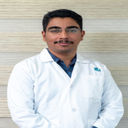
Dr. Aswin S. Krishna
Hepatologist
10 Years • MBBS, MD (Internal Medicine,MMC), DM (Hepatology, MMC), PDF(Fellowship in Liver Transplanatation)
Chennai
Apollo Hospitals Greams Road, Chennai
(125+ Patients)

Dr. Aakash Garg
Gastroenterology/gi Medicine Specialist
12 Years • MBBS, DNB (Medicine), DrNB (Gastroentrology).
Bilaspur
Apollo Hospitals Seepat Road, Bilaspur
(150+ Patients)
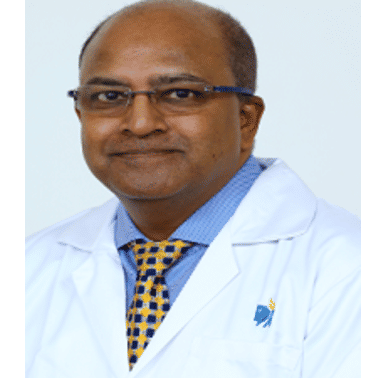
Dr. Murugan N
Hepatologist
18 Years • MBBS, MRCPI, FRCPG
Chennai
Apollo Hospitals Greams Road, Chennai
(425+ Patients)
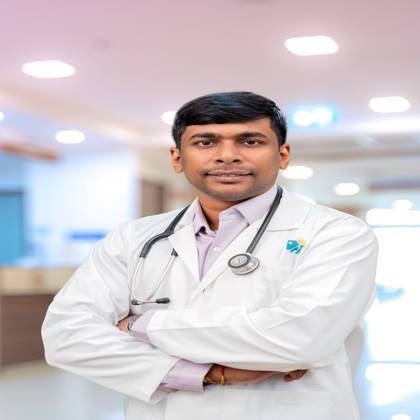
Dr U V U Vamsidhar Reddy
Hepatologist
10 Years • MBBS, MD (JIPMER), DM (Hepatology, PGIMER)
Chennai
Apollo Hospitals Greams Road, Chennai
(75+ Patients)
Consult a Top specialist for Personalised Advice

Dr. E Prabhakar Sastry
General Physician/ Internal Medicine Specialist
40 Years • MD(Internal Medicine)
Manikonda Jagir
Apollo Clinic, Manikonda, Manikonda Jagir
(150+ Patients)

Dr. Aswin S. Krishna
Hepatologist
10 Years • MBBS, MD (Internal Medicine,MMC), DM (Hepatology, MMC), PDF(Fellowship in Liver Transplanatation)
Chennai
Apollo Hospitals Greams Road, Chennai
(125+ Patients)

Dr. Aakash Garg
Gastroenterology/gi Medicine Specialist
12 Years • MBBS, DNB (Medicine), DrNB (Gastroentrology).
Bilaspur
Apollo Hospitals Seepat Road, Bilaspur
(150+ Patients)

Dr. Murugan N
Hepatologist
18 Years • MBBS, MRCPI, FRCPG
Chennai
Apollo Hospitals Greams Road, Chennai
(425+ Patients)

Dr U V U Vamsidhar Reddy
Hepatologist
10 Years • MBBS, MD (JIPMER), DM (Hepatology, PGIMER)
Chennai
Apollo Hospitals Greams Road, Chennai
(75+ Patients)
More articles from Fatty Liver
Frequently Asked Questions
1. Can you die from Non-Alcoholic Fatty Liver Disease?
While simple NAFLD itself is not a direct cause of death, its advanced form, NASH, can progress to cirrhosis and liver failure, which are life-threatening conditions. It also increases the risk of fatal cardiovascular events. Early management is crucial.
2. What is the best drink for fatty liver?
Water is the best choice. Coffee (black, without sugar) has been shown in studies to have protective effects on the liver. Absolutely avoid sugar-sweetened sodas and fruit juices, which are major contributors to liver fat.
3. How quickly can you reverse a fatty liver?
Improvements can be seen relatively quickly. With consistent lifestyle changes, a significant reduction in liver fat can occur within a few months. However, reversing inflammation and fibrosis (in NASH) takes longer and requires sustained effort.
4. Are there any specific foods I should avoid completely?
The most important foods to eliminate are those high in fructose and sucrose. This includes soft drinks, candy, pastries, and many processed foods. Also, limit intake of refined carbohydrates like white bread and white rice.
5. Is fatty liver disease genetic?
While lifestyle is the primary driver, genetics does play a role in determining an individual's susceptibility to developing NAFLD and its progression to NASH. Having a family history of liver disease or type 2 diabetes increases your risk.


.webp)
_4.webp)
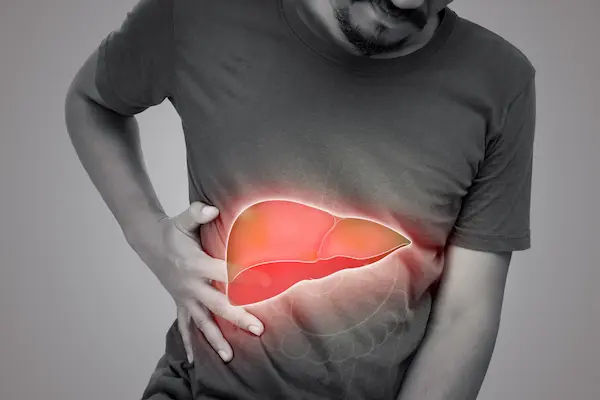
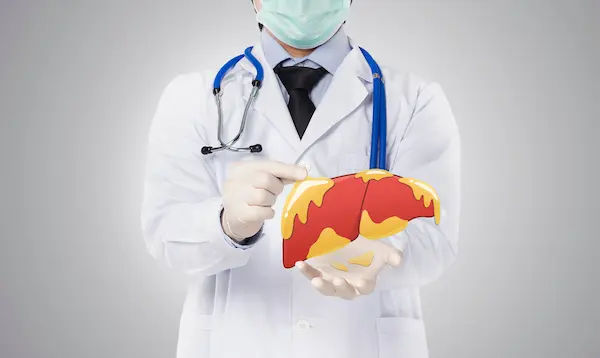
_1.webp)